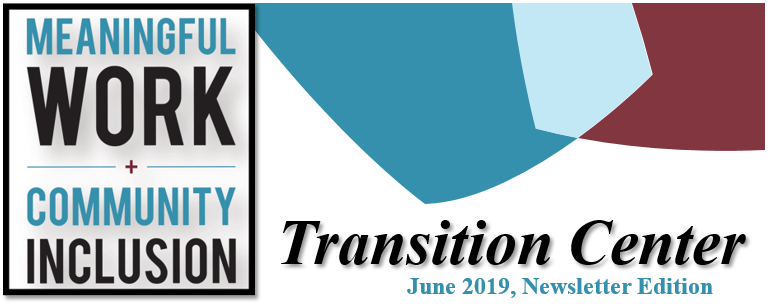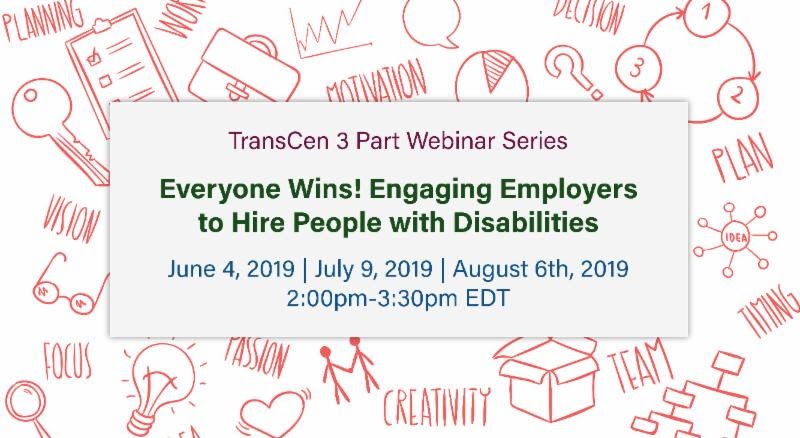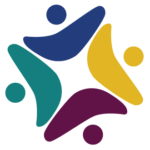Transition Center Newsletter Edition # 2 – Printable Version
TransCen, Inc. (TCI) was created over 30 years ago to be a transition center for youth and young adults with disabilities who wanted to work after high school. We continue that mission by providing Employment & Support Services to youth and adults with disabilities and other life barriers in Maryland, Wisconsin, and California. Our mission is to improve the lives of people with disabilities through meaningful work and community inclusion!
We are celebrating our second TransCen newsletter with a story and information from our Wisconsin team:
Creative Employment Opportunities
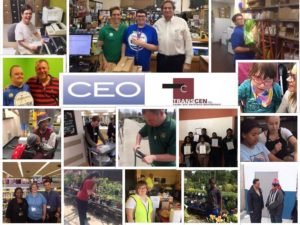 Creative Employment Opportunities (CEO) was founded by Laura Owens, President of TCI, in June, 1991 with the belief that all individuals, regardless of their disability, can and should work in the community. CEO distinguishes itself by providing high quality, individualized services that are customized to meet the needs of each customer (businesses and job seekers with disabilities). The goal is to provide each customer with a resource that can assist them in all aspects of employment. Services for job seekers include assessment (i.e., identifying interests & skills); internships, individualized job development, and on or off the job supports. CEO provides individualized services to job seekers with disabilities by customizing all services to their needs.
Creative Employment Opportunities (CEO) was founded by Laura Owens, President of TCI, in June, 1991 with the belief that all individuals, regardless of their disability, can and should work in the community. CEO distinguishes itself by providing high quality, individualized services that are customized to meet the needs of each customer (businesses and job seekers with disabilities). The goal is to provide each customer with a resource that can assist them in all aspects of employment. Services for job seekers include assessment (i.e., identifying interests & skills); internships, individualized job development, and on or off the job supports. CEO provides individualized services to job seekers with disabilities by customizing all services to their needs.
Services for businesses include training and technical assistance to educate and build employer capacity to reach out to one of the strongest labor & customer pools in the country – the disability community. CEO also provide training and technical assistance in various areas of interest regarding disability employment, employee diversity, and other areas of training to businesses and other organizations.
Meet Maddie
Discovery is the foundation of customized employment. Discovery activities focus on learning about each job seeker’s strengths rather than what a person cannot do. Activities take place in familiar settings where the person is comfortable, as well as unfamiliar settings to discover the individual’s interests, skills, and work preferences. Informational interviews can be a useful tool during the discovery process. Informational interviews are informal conversations with people who work in jobs or positions that match the job seeker’s work preferences and interests.
A job seeker who wants to learn more about a chosen field identifies people who are willing to talk about their careers or jobs. When used for customized employment, the focus is on getting to know a business in a similar way that discovery focuses on getting to know a job seeker.
Informational interviews may help the job seeker and the employment consultant learn more about how the person’s interests and skills may meet the needs of businesses.
Find out how informal interviews were used during the discovery process from Maddie’s case study which was done in collaboration with Virginia Commonwealth University, in the study Maddie’s name was changed to Betsy.
The Disability and Rehabilitation Research Project on Customized Employment at VCU is funded by the National Institute on Disability Independent Living and Rehabilitation Research (NIDILRR grant number 90DP0085). NIDILRR is in the Administration for Community Living, Department of Health and Human Services.
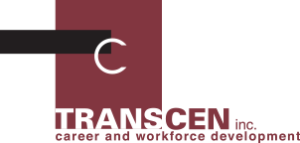 TransCen, Inc., is a non-profit organization dedicated to improving the lives of people with disabilities through meaningful work and community inclusion.
TransCen, Inc., is a non-profit organization dedicated to improving the lives of people with disabilities through meaningful work and community inclusion.
(301) 424-2002
inquiries@transcen.org
Keep up with TransCen on social media! Follow us on Facebook and Twitter! #ThisIsTranscen
Help Us Make a Difference
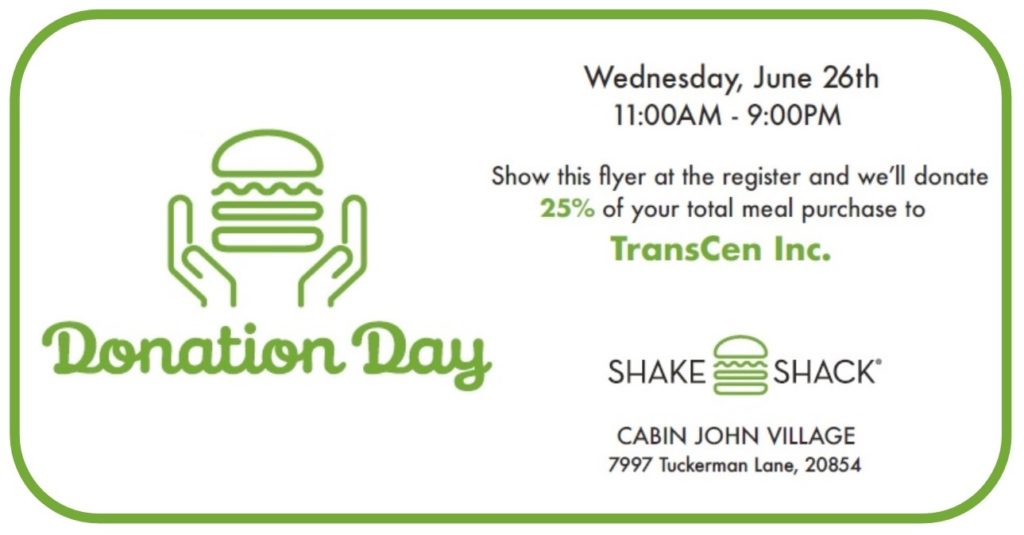
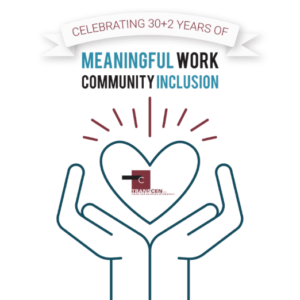

Upcoming Trainings and Webinars:
Engaging Employers to Hire People with Disabilities – Webinar Series
This 3-part webinar series will provide methodologies, strategies, and tools for Employment Consultants to manage the employer engagement process to achieve stronger employer relationships. This workshop is intended to promote coordination among Employment Consultants who work with local employers to offer consistent, quality employment services. The information in this webinar series is based on the U.S. Dept. of Labor Office on Disability and Employment Policy’s (ODEP) Employer Economic Impact Study. This national study provided employers’ perspectives on the benefits and economic impact of employment services including customized employment when hiring job candidates with disabilities.
Part 2: Approaching Employers and Developing Long Term Partnerships
July 9th, 2 pm to 3:30 pm eastern
This webinar will provide employer perspectives on how employment programs and their staff can effectively develop rapport that can lead to long term partnerships. Employers recommended specific strategies for developing an on-going relationship including the cultivation of an ‘internal champion.’ Employment Consultants can use this information to address employer concerns and cultivate long-term partnerships with employers in their community.
Part 3: Assessing the Economic Impact and Benefit of Your Employment Programs
August 6th, 2 pm to 3:30 pm eastern
This webinar will provide tools and strategies to assess the economic impact that an employment program has on its employer customer base. The information gathered from employers can be used to strengthen the relationship and foster new customers. Employment Consultants will be given the tools to replicate a national study with employers in their community and better define the value of their employment services.
About the Trainer: Dale Verstegen
 A Senior Research Associate at TransCen, Mr. Verstegen is assigned to a range of research, training, and technical assistance projects related to transition and employment services. Mr. Verstegen provides consultation and training in the areas of program development, performance management, marketing, and job development. Mr. Verstegen has developed curricula and provided training on supported and customized employment for a wide range of universities and state agencies. He has also provided field-based technical assistance to hundreds of Employment Consultants and Transition Specialists throughout the country in the area of job development and employer partnerships. Given his business background and having been an employer, Mr. Verstegen has focused his research, writing, and trainings on the provision of employment services to the employer community. Mr. Verstegen has his Masters in Business Administration from the University of Wisconsin – Madison and is currently the President of the Board of Directors of the Association of Community Rehabilitation Educators (ACRE).
A Senior Research Associate at TransCen, Mr. Verstegen is assigned to a range of research, training, and technical assistance projects related to transition and employment services. Mr. Verstegen provides consultation and training in the areas of program development, performance management, marketing, and job development. Mr. Verstegen has developed curricula and provided training on supported and customized employment for a wide range of universities and state agencies. He has also provided field-based technical assistance to hundreds of Employment Consultants and Transition Specialists throughout the country in the area of job development and employer partnerships. Given his business background and having been an employer, Mr. Verstegen has focused his research, writing, and trainings on the provision of employment services to the employer community. Mr. Verstegen has his Masters in Business Administration from the University of Wisconsin – Madison and is currently the President of the Board of Directors of the Association of Community Rehabilitation Educators (ACRE).
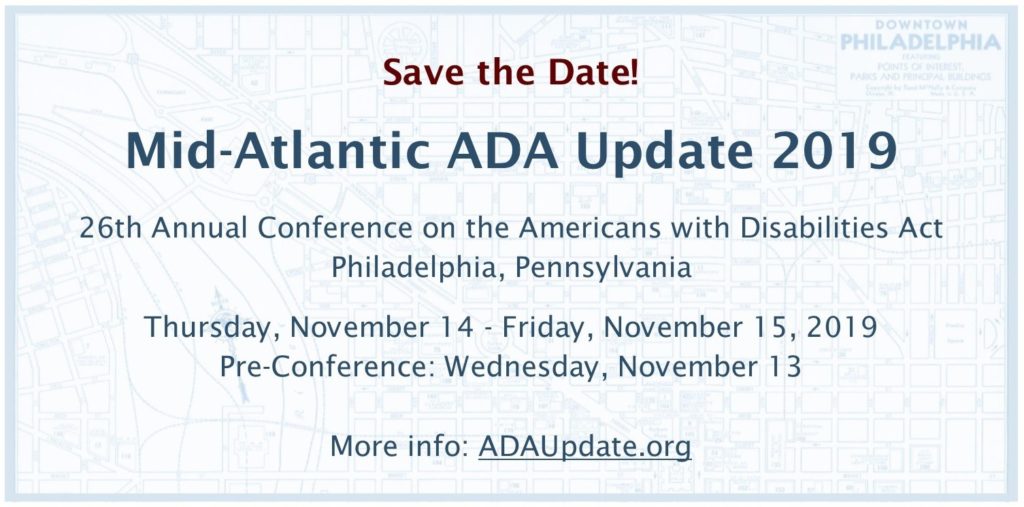
The 2019 Mid-Atlantic ADA Update will provide a wide range of up-to-date information on ADA regulations and guidelines, as well as strategies and best practices for successful implementation of the law. Conference speakers will include subject-matter experts from federal, state, and local government agencies, businesses, non-profit organizations, and universities. The ADA Update will offer opportunities to network with other professionals with similar interests and concerns. Professional development hours from several accreditation organizations will also be available.
Areas of the ADA that will be covered at the 2019 conference:
• Disability employment
• State and local government requirements
• Corrections and detention
• Accessible technology
• Accessibility in higher education
 Who should attend?
Who should attend?
• ADA Coordinators
• Advocates
• Architects
• Business owners and managers
• Code officials
• Educators
• Government officials
• Human resource specialists
• Service providers
• College and university disability service specialists
• You!
To receive advanced notice of registration availability, send an email to adatraining@transcen.org. Please use “2019 ADA Update” in the subject line.
 TransCen, Inc. also offers web-based, in-person training, and consultation services for state agencies, school districts, provider organizations, and others interested in meaningful work and community inclusion for individuals with disabilities.
TransCen, Inc. also offers web-based, in-person training, and consultation services for state agencies, school districts, provider organizations, and others interested in meaningful work and community inclusion for individuals with disabilities.
TransCen redefines transition from school to work and disability employment through strong business, community partnerships, tailored training, and field-based research.
Our work is driven by the belief that there is a job for everyone who wants one, regardless of the nature of their disability, or other barriers to employment, their need for workplace support and accommodation, or economic circumstance.



